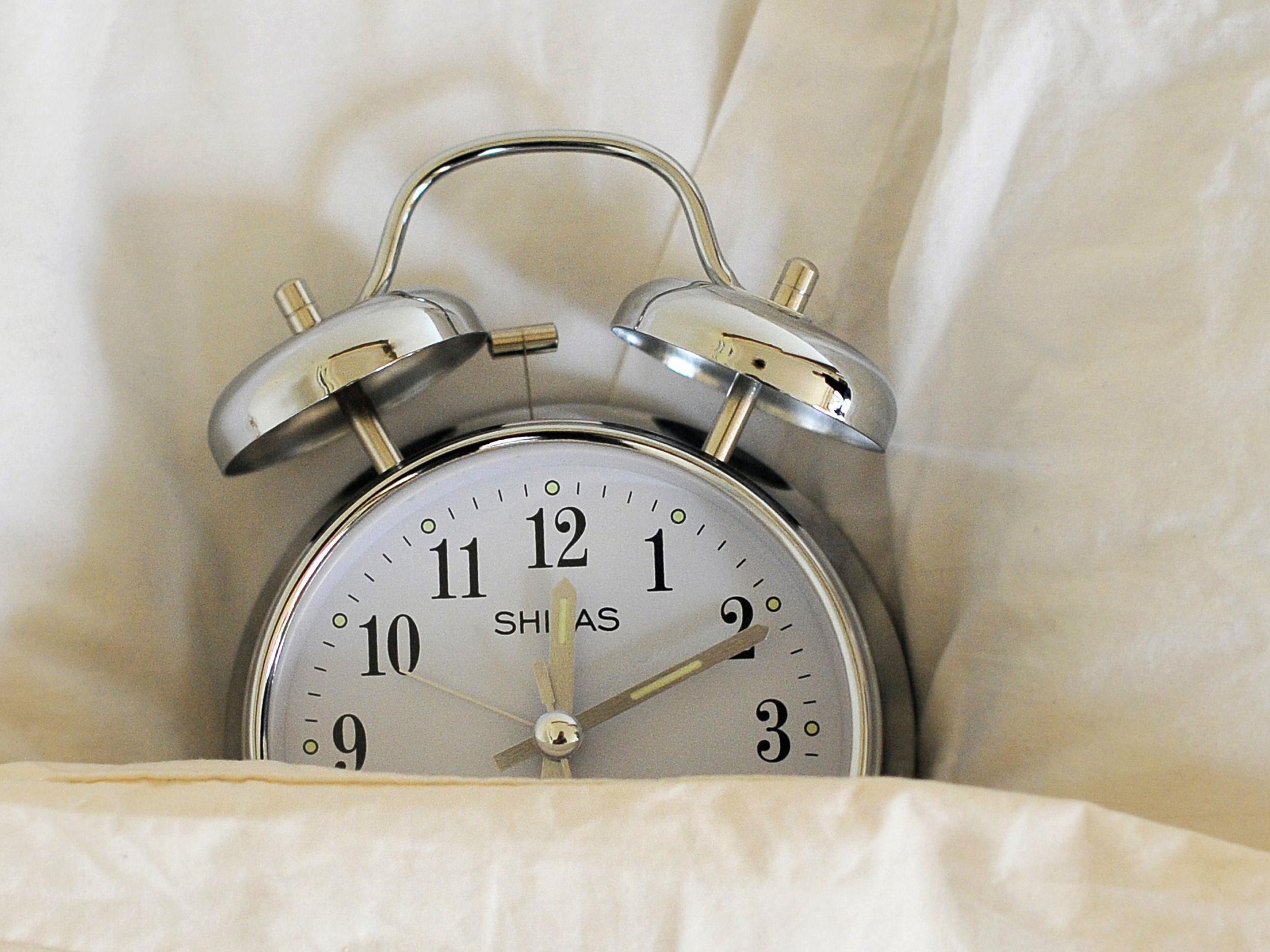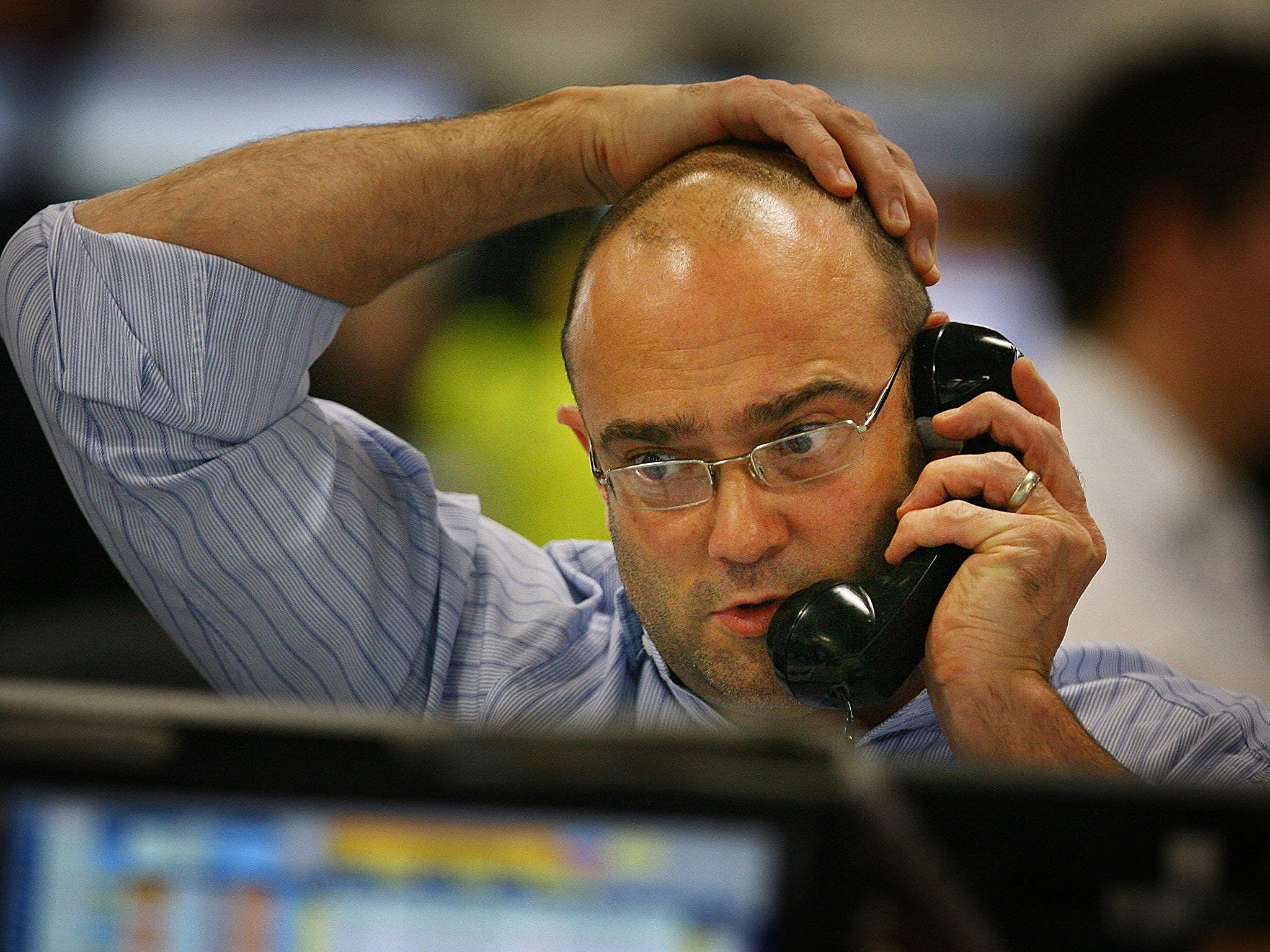23 signs you're burnt out at work
If your life is a chronic state of stress and exhaustion thanks to work, you're probably suffering from job burnout

Your support helps us to tell the story
From reproductive rights to climate change to Big Tech, The Independent is on the ground when the story is developing. Whether it's investigating the financials of Elon Musk's pro-Trump PAC or producing our latest documentary, 'The A Word', which shines a light on the American women fighting for reproductive rights, we know how important it is to parse out the facts from the messaging.
At such a critical moment in US history, we need reporters on the ground. Your donation allows us to keep sending journalists to speak to both sides of the story.
The Independent is trusted by Americans across the entire political spectrum. And unlike many other quality news outlets, we choose not to lock Americans out of our reporting and analysis with paywalls. We believe quality journalism should be available to everyone, paid for by those who can afford it.
Your support makes all the difference.Work can be taxing for everyone, and we all occasionally feel weary after a long day at the office.
But if your life is a chronic state of stress and exhaustion thanks to work, you're probably suffering from job burnout.
Sometimes it's hard to notice when the physical, emotional, or mental exhaustion from work is taking its toll, but with the help of burnout specialist Ben Fanning, we're able to identify some warning signs.
By taking note of these common habits workers exhibit when they're burnt out at work, you can take steps to avoid burnout entirely in your current role or reignite your career, Fanning says.
Steve Benna contributed to a previous version of this article.
Feeling depleted after work

Consistently lacking the energy after work to do regular things like cook, go to the gym, or spend time with your family is not a good sign.
Disregarding how you treat coworkers or customers
If you're planning to quit or you're just sick of dealing with the same people every day, it may be reflected in how you treat your coworkers.
Constantly being asked about your feelings
Do your coworkers often approach you because they're worried that you're struggling or down on yourself? This is a signal that others are picking up on your misery.
Feeling liberated after a Friday at work

You know you're really stressed when you truly feel like you've been freed when the weekend rolls around.
Explaining your job with “fine”
An obvious sign of burnout comes when family and friends ask you about your job, and whether it's new or you've been there for a while, you simply respond with one-word responses like “fine.”
Inconsistent sleep patterns
Oftentimes, people that are over-stressed at work will lose sleep over something they they did (or didn't do) at work, Fanning says.
Setting your alarm too early to use the snooze button

The signs of job burnout can start first thing in the morning. For example, you may feel so tired that you hit “snooze” over and over and then feel frantic and late when you wake up.
Losing hope for a turnaround
“When you're burned out it's easy to forget that organisations and the work environments are dynamic and are constantly changing,” Fanning says. “If you're frustrated by your company or boss, sometimes just waiting it out can be effective.”
Clenching your jaw when you walk in the office door
Simply walking through the door at work shouldn't cause your body to contract in this way, Fanning says. This could be a sign that you're stressed and anxious about work.
Finding yourself unable to relax

Fanning says finding yourself unable to slow down and relax, especially when you're doing typically relaxing things like getting a massage, is a sign you're emotionally burnt out.
Noticing coworkers are hesitant around you
If you notice that your coworkers are “walking on eggshells around you because they don't know what to expect,” that's a clear sign that you're having a tough time.
Dreading a new job search
Even if you know it's time for a new job, if you're over-stressed there's a chance you won't even take the time to look, Fanning says.
Over-complaining to your partner

There's no doubt that venting can help, but your problems at work shouldn't consistently become the problems of your significant other or your close friends.
Being overly cynical
Once you lose interest in the company and stop caring about helping it, you can become an on-the-job liability.
Rarely feeling like you're progressing
A lack of progress or feeling like you're stuck is likely a sign that it's time for a new job — or at least a vacation.
Constantly feeling overwhelmed

Stress at work is inevitable, but every moment shouldn't be stressful. There are simple methods that can help.
Forgetting your last accomplishment at work
Not remembering the last time you felt satisfied or accomplished at work can signify the development of job burnout.
Not wanting to explain your job to people
“What do you do for a living?” is a common question at cocktail parties, but it likely becomes annoying to someone who is sick of their job.
Frequently losing your temper

Stress can lead to temper tantrums, when “it feels good just to let it erupt on whoever's around,” Fanning says.
Fantasising about quitting
Moving to a new job for a higher salary or better hours is one thing, but fantasising about simply quitting is on the other end of the spectrum.
Dreading every Monday
Similarly to only looking forward to Friday night, absolutely dreading Mondays signals you're burnt out at your current job.
Living like a vampire

Arriving before dawn and leaving well into the evening is stressful on its own. Being forced to work these hours can make the problem even worse.
Not spending time with coworkers
Burnt out employees tend to shy away from company-wide lunch events or happy hours because they've lost interest in building their network, Fanning says.
Read more:
• Global markets are getting slammed
• This is what a $700 billion bond-market bubble looks like
• Credit Suisse's boss wants the bank to slash his bonus by up to 50%
Read the original article on Business Insider UK. © 2015. Follow Business Insider UK on Twitter.
Join our commenting forum
Join thought-provoking conversations, follow other Independent readers and see their replies
Comments